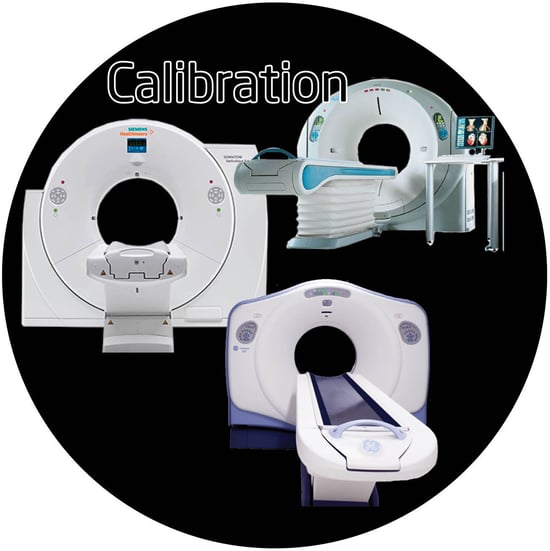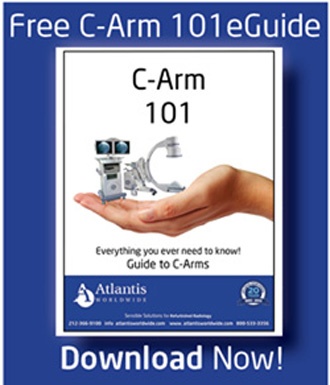With more than 75 million CT scans performed each year in the U.S., the demand for accurate, high resolution images is high. If your CT Scanner isn’t calibrated correctly and on a regular basis, you might not be able to handle the demand for diagnostic, therapeutic and interventional procedures in your clinic, hospital, urgent care center or imaging facility.
isn’t calibrated correctly and on a regular basis, you might not be able to handle the demand for diagnostic, therapeutic and interventional procedures in your clinic, hospital, urgent care center or imaging facility.
To make sure your CT Scanner delivers high resolution images of nerves, arteries and other vascular structures, it’s important to calibrate your CT unit on a regular basis. While there are no hard and fast deadlines for calibration maintenance, your bio-med team, radiologists and department imaging directors should determine the right protocols for calibrating the CT Scanners you have.
What Is CT Scanner Calibration?
CT Scanner calibration is when an object or phantom with a known radio density is scanned to see if its measurements are giving the appropriate Hounsfield units (HU). A HU value allows you to measure the absorption/attenuation of radiation within tissue. A grayscale is produced using a study’s appropriate HU during the CT reconstruction phase. CT scanners can render more than 200 different shades of gray, ranging from the lightest whites to the darkest darks. This kind of contrast allows you to detect the slightest difference within 2% in tissue density. If your CT Scanner isn’t calibrated correctly, it can result in image distortion or a lack of proper contrast. This can lead to misdiagnosis or even a delay in the treatment of critically ill patients. A routine CT calibration is needed to maintain image accuracy without distortion or loss of value. However, some CT Scanners need calibration more often, like those used for CT angiography.
If you are considering buying a CT Scanner that’s used or refurbished, it’s important to check the calibration and test the accuracy for the specific studies performed at your practice or facility.
Calibration depends on technological characteristics, image viewing conditions and exposure factors used. The following parameters are tested during the calibration of a CT Scanner:
- The CT number. This calculates the relevant number of the body’s different tissues.
- Linearity is measured with a phantom and several materials that mimic different tissues. The images are consequently compared with the actual HU of the tissue.
- The calibration also measures the uniformity or homogeneity of the image. This ensures that hardening artifacts are avoided and that there’s a uniform appearance free from artifacts when the tissue is imaged.
- Spatial resolution provides the ability to distinguish differences between two structures with different densities, like muscle versus fat cells.
- The calibration also tests for noise or unwanted values or densities in a homogenous image.
- The calibration will also test for low contrast resolution. CT imaging should distinguish 200+ shades of gray. This is vital for distinguishing different types of tissue.
- Calibration also tests for slice thickness as well as the positioning of the couch (the movement of the table during the scan).
It’s unfortunate that there is currently no universal standard for scanner calibration. That’s why it’s important that your bio-med team work closely with department imaging directors and radiologists to determine the specific protocols for your facility.
Talk to An Expert
Are you looking for a new CT Scanner for your practice, clinic, urgent care center or facility? You might consider purchasing a refurbished or used CT Scanner that offers the performance you want at a much lower price. The experts at Atlantis Worldwide can help you identify the right CT Scanner for you, and guide you in selection criteria, such as CT calibration, warranty coverage and more. Talk to Atlantis Worldwide today.
Some blogs you may have missed:
- Should You Buy New Or Used X-Ray and CT Tubes?
- CT Scanner Artifacts- How Do I Correct Streaks?
- The Lowdown on CT & X-Ray Replacement Tubes
- Is Your CT Tube About To Fail?
- Free CT Resources
About the author: Vikki Harmonay



